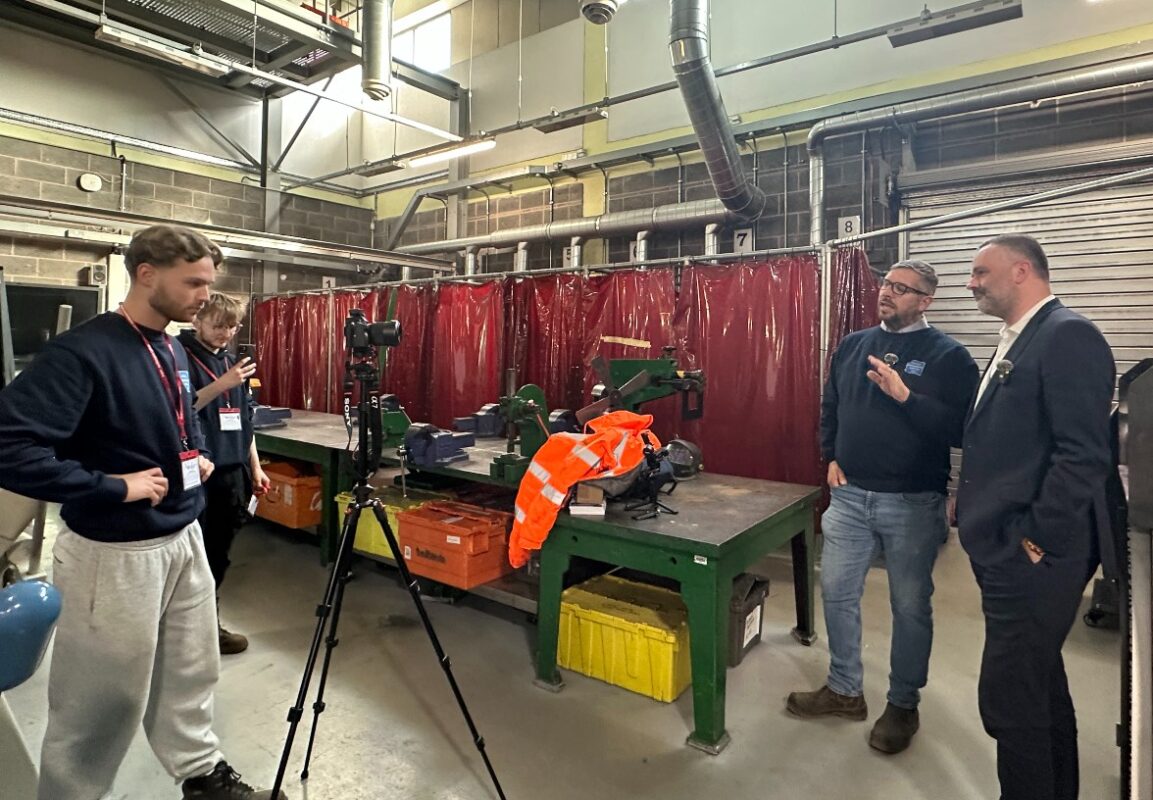AI Offers Economic Gains For The UK, But Only If Education Can Keep Pace

Integrating AI into education is essential for preparing young people for a job market where AI proficiency will be a baseline requirement.
In New York this week, Keir Starmer announced a £10 billion investment by Blackstone to create one of the largest artificial intelligence data centres in Europe in the North East of England, a project that is projected to create 4,000 jobs in the region. This investment is emblematic of the UK’s potential, at the cusp of a technological revolution, to lead in artificial intelligence (AI) and other emerging tech sectors.
But despite the burgeoning demand for tech-savvy professionals, current educational policies are inadvertently hindering students from accessing essential AI tools. As a result, this promising future is threatened by a significant skills gap.
If the UK is to cultivate a homegrown tech workforce, local authorities must enable and empower students and other young people to harness the power of AI in education. And while concerns over misuse and data protection are valid, attitudes toward AI in the classroom are shifting, and investment in safe AI solutions for education could provide the answer.
The growing skills gap in the UK tech industry
The UK’s tech sector is growing at 2.5 times the rate of the rest of the economy. According to TechNation’s People and Skills Report 2022, the number of advertised tech jobs rose to a remarkable 2 million – yet employers are still unable to fill their vacancies. The impact on the economy is stark. A report by the Edge Foundation on the UK’s skills shortages found that in 2018, the 600,000 tech vacancies in the UK cost the economy an estimated £63 billion in lost GDP.

By 2030, it’s projected that 85% of the jobs that will exist haven’t been invented yet, many of which will be rooted in AI and machine learning.
This growing skills gap poses a significant risk to the UK’s global competitiveness. Countries like China and the United States are investing heavily in AI education. China has integrated AI courses into its national curriculum, aiming to produce a generation fluent in AI technologies. Without a workforce proficient in AI and other advanced technologies, the UK could fall behind other nations that are rapidly advancing in these fields.
Barriers to AI in education
In an interview with hundo, Dan Fitzpatrick, Author of The AI Classroom: The Ultimate Guide to Artificial Intelligence in Education, outlined the two most common concerns about use of AI in the classroom:
“Number one is what’s generally referred to as academic integrity. Artificial intelligence, as we’re seeing, gives you the power of the tools to produce work that you can pass off as your own. And it’s really difficult for a teacher or somebody who’s assessing your work to be able to know the difference.
Another concern is data privacy. If you’re talking to an AI, especially at this moment in time, the chances are that data is being used to train artificial intelligence.”
These concerns are valid, and have prompted policies at the local authority level that limit access to AI tools in schools. Many educational institutions have implemented strict regulations that block the use of AI platforms, citing concerns over data privacy, misuse, and a lack of understanding of the technology.
The importance of AI integration in education
While well-intentioned, these policies create a glaring disconnect between educational practices and the skills required in the modern workforce. By restricting access to AI tools, students are deprived of the opportunity to learn and experiment with technologies that are shaping the future.
Speaking to hundo about how AI is transforming the workforce, CEO of Dante AI James Martin said: “AI can do a tremendous job currently of automating tasks and reacting to a user’s input. But how can the AI start seeing around corners and how can it be used to actually make valuable predictions in the next potential direction? This means that skills needed in the workforce will increasingly include understanding how to work alongside AI and leverage its predictive capabilities.”
As a tool, AI itself can also be hugely beneficial for learning. For students, AI can provide personalised learning experiences, adapt to individual needs. For teachers, AI is a powerful tool to assist with lesson planning and administration, giving them more time for the human side of teaching.
Dan’s advice is “If I was a teacher now, I’d be asking students to go away, use ChatGPT, figure things out, write things down – but I’m not going to assess what you’re writing down. What I’m going to do is I’m going to have a conversation with you. Can you communicate what you’ve learned to me?”
Investing in safe solutions for schools
In reality, it does not have to be either-or; the integration of AI into the classroom does not need to come at the expense of students’ data privacy. Among the enterprises leading the UK in AI and education, the imagination, skills, and technology required to develop school-appropriate AI solutions are abundant, and efforts are already well underway.
With investment at the local authority level, suites of classroom-safe AI tools could be rolled out across the country, empowering students to become proficient in using AI tools while adhering to the appropriate guardrails.
hundo’s Career CoPilot, an interactive AI tool that makes learning engaging and effective, was designed specifically for educational examples. When asked about safeguarding, hundo’s Technical Co-Founder Scott Byrne-Fraser said: “All the data a student chooses to put onto the platform is totally under their control. What makes Career Copilot a leader in the education field is that it responds to concerns over student privacy by adhering to all relevant data protection regulations.”
Schools and colleges using hundo’s Career Copilot have reported increased student engagement and improved learning outcomes, and teachers have found it to be a valuable assistant in delivering complex subjects more effectively.

Call to action: reimagining policy for future skills
There’s an urgent need for policy revision on AI in education at the local authority level. Policymakers must recognise that blocking AI tools is counterproductive to the nation’s interests, and instead focus on classroom-friendly solutions. Here’s our starter for ten:
- Policy overhaul: update regulations to allow controlled use of AI tools in schools.
- Stakeholder collaboration: encourage dialogue between educators, tech providers, and policymakers to address concerns and find solutions.
- Investment in training: Provide resources and training for teachers to effectively integrate AI into their curricula.
If local authorities and educators are worried about pushback from parents, they needn’t be. A recent Gov.uk report on public attitudes toward the use of AI in education produced by the Department for Science, Innovation and Technology and the Department for Education found that opinions on AI are far from fixed. Where views on the use of AI in education were initially sceptical, there was openness to learning more, and parents and pupils agreed that there are clear opportunities for teachers to use AI to support classroom learning.
Aligning educational policies with the UK’s tech ambitions is imperative to the UK’s economic prosperity and position as a global tech leader, and unlocking AI for students is a critical step toward bridging the UK’s tech skills gap. By revising policies that hinder access to the essential tech that’s defining the future of work, we can empower the next generation with the skills they need to thrive.
The future of the UK’s tech industry depends on the actions we take today. Let’s invest in our students, embrace AI in education, and put these skills at the heart of the new strategy.
By Esther O’Callaghan, Founder of hundo and Amelia Loveday, Head of Partnerships at hundo











Responses